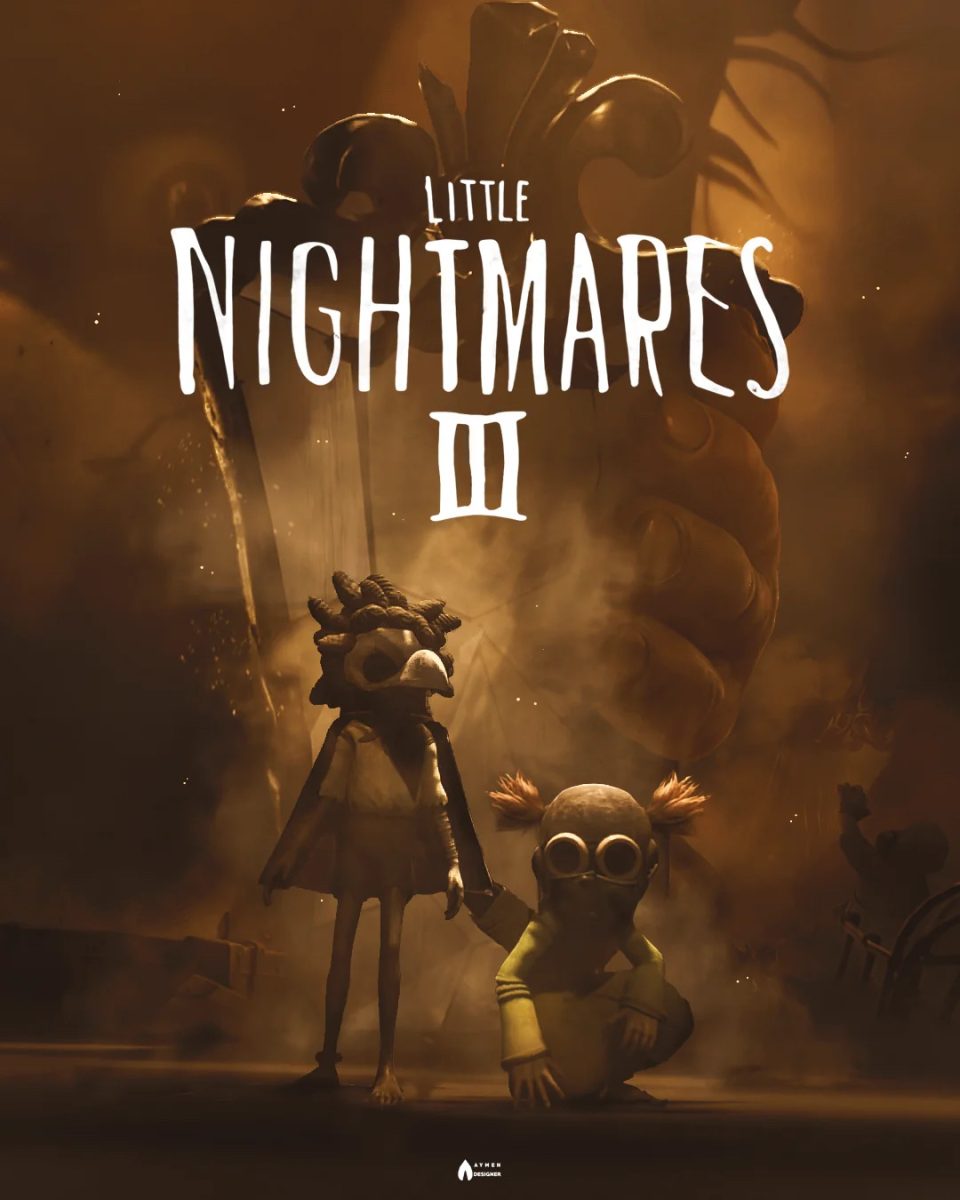Mac Miller was a rap artist who passed away back on Sep. 7, 2018, as a result of an accidental drug overdose. “Balloonerism” is his second posthumous album, which comes after his album “Circles,” which is acclaimed by many as his best release to this date, because connected with millions due to its gutty lyrics about mental health, feeling lost, and Miller’s search for closure. It also gave off an eerie vibe to many listeners, as it seemingly foreshadows Miller’s death or at the very least talks about his addiction issues that ended up being the cause of his untimely passing.
Unlike “Circles,” which was recorded in 2018, “Balloonerism” was recorded in 2014 but remained unreleased during Miller’s lifetime, but now, four and a half years later, the album has been released for the public. Due to this, many listeners, including myself, have no clue what they are getting into.
The album starts with a 33-second sound byte of someone playing the tambourine on “Tambourine Dream.” There is little to say about it, as no lyrics are present.
The album’s first song starts with “DJ Chord’s Organ ft. SZA.” The first two minutes are just an organ being played, with SZA harmonizing in the background. Finally, we get to words, which are still barely distinguishable, but after looking up the lyrics I have found that Miller and SZA are saying “Watch the world go round and round” for about 30 seconds. The song goes into a 16-line verse by SZA, and then it’s back to just music. Miller comes on at the end of the song and just says “yeah” and “woah”, but overall you can tell the song isn’t meant to be hyper-analyzed, rather just listened to and enjoyed for the art that it is.
In the next song “Do You Have A Destination?”, Miller says a line that tugs at the heartstrings, as he says “I gave my life to this s***, already killed myself.” As I mentioned before, Miller passed away due to a drug overdose, and while his taking drugs may have not been fully because of his life in the entertainment industry, it was likely a large part of it, as many other musicians, specifically in rap, struggle with a drug addiction that is very prevalently mentioned in the lyrics of their music. One thing I’d like to add is that many other lines would be great to talk about and are very relevant, but there is simply too much for me to cover in one review. This song should’ve been the first song. It is way more impactful than “DJ Chord’s Organ,” I believe the album would’ve been way better with a thought-provoking intro.
Following that is the lead single, “5 Dollar Pony Rides,” which is a catchy song that brings up topics of relationships, and a large part of it is Miller trying to figure out what it is that the woman that the song is about wants. “Friendly Hallucinations” is about a deeply depressed girl, who is only able to feel love and joy if she is on drugs, as she sees and feels things that “aren’t real,” but Miller says many times that something “is only real if it’s real to you,” basically trying to defend her feelings. This feels like he is trying to say that it’s ok for someone to feel like they need/love the drugs that they’re abusing, which resonates with his life.
“Mrs. Deborah Downer” is a solid song that again talks about addiction and the impermanence of material objects in life. With about a minute left, the song slows down, and the lyrics “Whatchu gonna do when the money come in slow?” This part of the song speaks to how being on top of the world and thriving financially isn’t the most consistent thing, especially in show business, and begs the question of how, after a person is no longer relevant or experiencing the financial freedoms they did in the past, are they going to keep up the luxurious lifestyle that so many live where they just blow through all their money.
The next song, “Stoned” is one of the easier-to-understand songs on the album, which is likely why it has performed the best commercially by a good amount. Miller talks about a woman who is depressed and addicted to drugs. Miller tries to reach out and connect with her, which he can only do with drugs, as she doesn’t want to let down her barrier and talk about her issues. He once again brings up depressing topics like death, but he seemingly tries to put a positive spin on it, by comparing heaven to home, and saying that he, along with the woman in the song, to just goes home
“Shangri-La” and “Funny Papers” feature Miller getting into his lyrical bag, showing just how dynamic of a musician he can be. Once again, the topics are all very pessimistic and depressing, which can get tiring if you are just trying to listen to music. All in all, these songs aren’t anything crazy but show just how good Miller was at taking a flow and making it his own.
“Excelsior” talks about sandbox problems (literally) as it focuses on kids on a playground talking about jealousy and sadness that starts at a very young age. Miller looks at these problems that a child faces, sees how minuscule they were as an adult, and asks, “When did life get so serious?” At this point in the album, it’s just really nice to hear something that isn’t depressing and sad, as this song doesn’t feel as much like the others where everything is terrible and the only way out is death, but rather that life isn’t really bad as long as you try to not over fixate on problems that have no solution.
After a forgettable “Transformations,” “Manakins ft. Dylan Reynolds” is a song that talks about learning from change and experiences, rather than just a textbook, and also talks about how life is what you make it, and has an overall message that you can do whatever you want, but you can’t wait too long or you’ll die before you can do what you wanted to truly do.
“Rick’s Piano” just feels like Miller venting to the mic, in which he talks about things that happen in day-to-day life for others, as well as himself. A line that sticks out to me is, “Listen to their voices, I was lost in the commotion, none of us are chosen, I forgive ‘em for their ignorance, but… what’s a man gotta do for a little bliss?” Here, he brings up how he doesn’t blame others for not being as observant or involved with what he’s been struggling with, but he just wants something or someone to make him happy. For the second half of the song, he asks what death feels like and why it “steals” life. It’s eerie hearing someone who passed due to an overdose talk about these topics and makes you think about what if someone reached out what would’ve happened.
The final song on the album, “Tomorrow Will Never Know,” is an astonishing 11 minutes and 52 seconds long, but about half of the song is just the instrumental. Despite half of the song lacking any words, it’s still a very difficult track to interpret the true meaning of. Some have said that it’s about what happens after death, some say it’s about how god just takes lives at random, but I think it’s something slightly different from both. I think it’s about how god tries to tell Miller to end his life or convince him that death isn’t bad. I get this from the line, “You wonder when God will just listen and give you a break, and he says, ‘See, living and dying are one and the same.’” That along with the constant missed phone calls playing in the background seems like it is a song where Miller describes how he may have contemplated/contemplates, at the time of writing, ending his own life. The song does an incredible job at capping off an album that may go down as one of the most thought-provoking in Miller’s discography.
Ballonerism isn’t rich with songs that you can listen to with a couple of friends in the car, or at a club, but Mac Miller doesn’t have much music like that outside of the very beginning of his career. This album is something that I recommend to anyone who likes substance in music and likes to sit down and truly dissolve the lyrics that are being spoken. It’s unlikely that the Miller estate will release another album, as they have been very meticulous with what they have put out, as to make sure that nothing that Miller himself wouldn’t have cleared to come out is released. If this is the final album, I, along with anyone who has listened to and enjoys Miller’s music, am happy that his legacy can rest with what could only be described as a cherry on top of his incredible catalog.
Final album rating: 9/10








